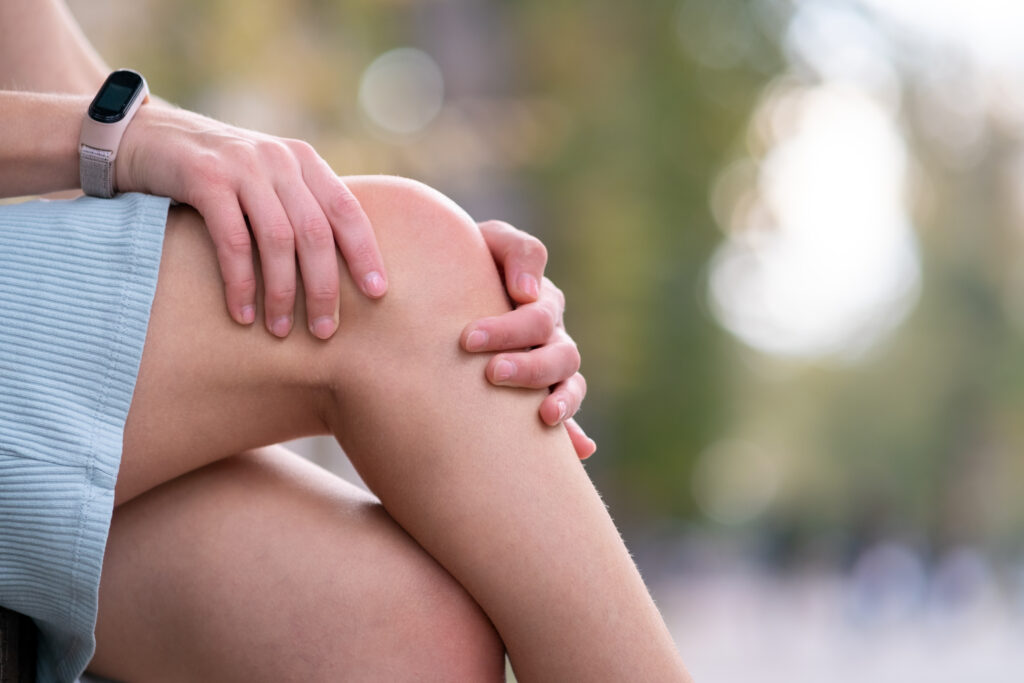
Muscle Pain After Car Accident: How Long Should Soreness Last?
Car accidents are one of the leading causes of muscle pain. If you’re suffering muscle pain after a car accident, it’s important to learn if you’re experiencing muscle soreness versus a muscle injury. Soreness usually subsides in around six weeks, while muscle injuries may take longer to heal.
While it may not appear as severe as a broken bone, a damaged muscle can cause extreme pain and weakness. Over time, the trauma of a muscle injury can take precious time away from loved ones, friends, and even work. When left untreated, muscle pain may become chronic.
If you’ve recently suffered muscle pain after a car accident, keep reading to learn the difference between muscle soreness and a serious injury. Discover how muscle injuries are treated and what to do if muscle pain continues for weeks after a collision.
How Long Should You Be Sore After a Car Accident?
Most car accident victims feel sore for up to six weeks after a car crash. This timeframe is just an estimate because there is no time limit for how long muscle pain will last after the trauma of a car accident.
The amount of time you experience muscle soreness will vary based on:
- Any preexisting injuries
- Your position inside of the vehicle
- The speed and severity of the crash
- The size of both vehicles involved in the crash
- The official diagnosis from a medical professional
- Whether you were wearing a seat belt
Common Causes for Muscle Pain and Soreness
There are more than 600 muscles, 900 ligaments, and 4,000 tendons in the human body. That’s a lot of soft tissues—and any one of them can sustain car accident injuries.
The most common cause of muscle pain and soreness is overstretching and tearing during a crash, known as a muscle strain.
The sudden impact of a car accident can cause individual muscle fibers to tear, causing swelling and inflammation at the injury site. Inflammation then irritates the sensitive nerves surrounding the muscle fibers, causing pain, tingling, and burning. Inflammation can take a few days to develop, which is why some muscle injury symptoms can take 24 to 48 hours to appear.
For muscles to recover after a car accident, the body tries to protect the damaged tissue by immobilizing the area. This will cause the muscle to contract, causing painful muscle spasms. Spasms are typically indicative of a muscle injury rather than muscle soreness. Take a look at the common muscle injuries that can occur after a collision.
Common Muscle Injuries that Cause Pain
A car accident can cause a range of common muscle damage, known medically as soft tissue injuries.
- Bruises and Contusions: Mild soft tissue damage caused by ruptured blood capillaries beneath the skin’s surface.
- Strains and Sprains: Soft tissue injuries caused by tearing of muscles and ligaments, respectively.
- Whiplash: A type of neck injury caused by the stretching and tearing of some or all of the muscles, ligaments, tendons, and facet joints in the cervical spine.
- Airbags and Seat Belt Injuries: Compression injuries caused by airbags or a seat belt that restrict the soft tissue and organs located in the chest and abdomen causing pain, as well as forcefully strike the wrist.
- Joint Injuries: Bodily injury caused by a broken or displaced bone in a joint, often accompanied by a torn muscle or ligament that pulled the joint out of place, especially with spinal injuries.
Not all muscle pain is caused by a simple sprain. In some cases, muscle pain and soreness can indicate a more severe injury.

Could the Cause be a More Serious Injury?
Without medical attention, it’s difficult to tell what’s causing muscle pain after a car accident. The body creates inflammation at the site of damage, so localized muscle pain can mask a more serious injury. For instance, what feels like a torn muscle in your stomach could be abdominal pain from an internal injury.
Those who suffer severe whiplash symptoms are more likely to suffer a facet joint injury in addition to muscle pain. Facet joints connect the bones of the spine and can even cause back pain and headaches when damaged. Localized muscle pain may indicate herniated discs, which can cause a pinched nerve, numbness, and even shooting pain in the hip, knees, and legs.
What Should I Do if I Am Sore After an Accident?
Soreness is normal after the trauma of a car accident. However, muscle aches and fatigue should never just be chalked up to the average stress of a crash. If you’re experiencing sore muscles after an accident, the key to alleviating pain is the peace of mind from a proper diagnosis and treatment plan.
Read below to learn how muscle aches and pain from car accidents should be treated and how to help your body after a car accident.
1. See a Doctor
First and foremost, always visit a doctor if you’re experiencing muscle pain after a car accident. With so many important muscles in the human body, there’s a risk that your muscle pain could indicate a more serious injury.
To accurately diagnose your muscle injury, a doctor will utilize common medical imaging devices such as:
- X-rays
- Magnetic resonance imaging (MRI)
- Computed tomography (CT scan)
Once your physician has an official diagnosis for you, you can work together to construct a treatment plan consisting of the following care.
2. Rest
Rest is an essential part of any treatment plan. A car accident not only stretches and tears muscle fibers but also puts a massive strain on your whole body. It’s important to give your body the time it needs to repair itself, reduce inflammation, and fully heal. Your exact treatment timeline may vary, so anticipate taking a few weeks off from work to rest.
3. Stay Hydrated
Hydration is another crucial component of a successful treatment plan. Your muscles cannot function properly without enough water and will ultimately begin to cramp. Since you’re likely already experiencing muscle spasms from your accident injury, your muscles need extra hydration to prevent further cramping.
4. Physical Therapy
Physical therapy is not a requirement for a muscle injury, however, your doctor may recommend a physical therapist to help with stiffness and limited range of motion after a collision. As your muscle injury heals, the area may remain tight, and you may feel some pain when relearning specific movements. Physical therapy helps build back muscle in a healthy, safe way.
5. Massage Therapy
Massage therapy is also not required, but many physicians may refer you to a massage therapist to help reduce tension and inflammation as your body is healing. Your physician may recommend chiropractic care for upper back and lower back pain. Chiropractors are especially knowledgeable in the spine and can help alleviate muscle pain accompanied by facet joint injuries or a herniated disc. Many chiropractic offices offer both massage therapy and chiropractic care in one location.
6. Stretching and Yoga
Whether you visit a primary care physician, physical therapist, or chiropractor, most medical professionals will recommend a stretching or yoga regimen for a healing muscle injury. Both gentle stretches and beginner yoga poses are non-strenuous exercises that can help improve range of motion, relieve inflammation, and keep your body moving after an injury.

What if You’re Still Sore Days or Weeks After an Accident?
Most car accident victims are sore for an average of six weeks after an accident. If you already received a diagnosis from your doctor, such as a muscle strain in your shoulder, still feeling sore after a few weeks isn’t cause for concern. You should visit a doctor if you did not receive a diagnosis immediately after the crash and are now experiencing pain symptoms.
Many personal injuries cause delayed pain, symptoms that do not occur for several days after the accident. In the case of muscle injuries, the inflammation present at the time of the crash may not worsen and cause severe pain until 48 hours after the collision. It’s crucial that accident victims speak with a doctor to identify the source of the pain.
It’s not uncommon for muscle injuries to cause chronic pain that can last for months or even years. More than 60% of ongoing lower back pain can be attributed to a previous accident injury. If this is the case for you, do not hesitate to reach out to a car accident attorney. A lawyer can assist you in seeking compensation for the ongoing medical bills caused by chronic pain.
Can You Sue for Muscle Pain Caused by an Accident?
Yes, you can sue for muscle pain caused by a car accident. A personal injury claim can provide compensation for your pain and suffering, along with financial losses caused by the injury. You can file a lawsuit against the at-fault driver for your medical bills, future medical expenses, and lost wages from time spent off work.
Unfortunately, filing a lawsuit is a major undertaking. If you’re dealing with the insurance company, you’ll be expected to know legal jargon and procedures that the average person doesn’t usually know.. Instead of tackling a personal injury claim for muscle pain after a car accident alone, seek the help of a qualified car accident attorney to help streamline the process.
Here at The Miley Legal Group, our team of legal experts is ready to help you receive the settlement you deserve for your pain and suffering. Our personal injury attorneys are well-versed in rear-end collisions, side-swipes, and head-on crashes. Contact us today for a free consultation to learn more about what to expect from a muscle injury claim.

